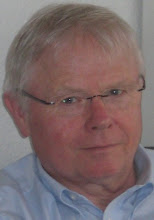The city of Van is known for the beauty of its surrounding. "Van in this world, paradise in the next" is an Armenian proverb, dünyada Van, ahirette iman say the Turks similarly ("Van for this world, faith for the next"). Mt. Ararat (5.165 m) and Mt. Süphan (4.058 m), in the photo below seen from the incoming plane, watch over it with a solemn might that reminds of Mt. Fuji in Japan.

Many nations have fought to own Van. The long row of emperors dates back to the mythic people of Urartu with their name connected with Mount Ararat, which lies 50 miles from here. The Medians and Persians and Alexander the Great owned it, before around the time of Christ King Tigranes of Armenia was the first to put it under Armenian control. The name Van is Armenian and means village.
After the conquering Romans the Persians (Sassanides) came again, followed by the Byzantines and for a short time by the Arabs. The Armenians also came again, around 900 and founded the kingdom of Vaspurakan only to be followed by a wave of people from Central Asia. The Mongols took Van from the Seljuks, the Timurid Turks took it from the Kara Koyunlus, the only stable reality from than on was the government of Central Asians and from around 1400 on also the Muslim faith.
The Ottomans, a fifth Central Asian party, finally held Van for almost 400 years. In Turkish they are called Osmans a name taken from their first leader Osman I who lived in western Anatolia from 1258 – 1326 as the head of one of the local Emirates.
He and his family gained an ever increasing control in the West that, under Osman’s grandson Murat I lead to the famous victory over the Serbs in Kosovo 1389. Murat died there but his children and grandchildren went on fighting and finally in 1453 conquered Istanbul. Mehmed II “the conqueror” was the seventh Sultan in the row beginning with Osman.
The series of victories in the West went along with problems in the East – fights with other Sultans, Mongols, Persians. It took the Osmans another 100 years from Istanbul until they could install an undisputed government also in Van.
The Osmans / Ottomans did not ask their people to convert to Islam. At the end of their reign Van had about as many schools for the Muslim Turks as it had for the Christian Armenians, both nations obviously not too much interested in a clear concept what Turk or Armenian meant after centuries of migration from in and out Central Asia and also from the various regions that Armenia did possess and loose in the course of history.
 The much contested paradise finally turned to hell when democracy came and claimed that freedom can only exist in a national state with a clearly defined national character. Some people would later say, simplifyingly, that a State is a language with a police. From that it was obvious that Van had one language too much, the Armenian.
The much contested paradise finally turned to hell when democracy came and claimed that freedom can only exist in a national state with a clearly defined national character. Some people would later say, simplifyingly, that a State is a language with a police. From that it was obvious that Van had one language too much, the Armenian.Ethnic cleansings, to say the least followed. The Treaty of Sèvres 1920 (after Versailles 1919) to end World War I was rewritten by Attatürk’s Army that took Van by force from what was planned to be the Democratic Republic of Armenia but had problems to come into a short-lived existence before falling into the hands of the Russian Communists.

The Kurdish boys that help uns to climb the old city castle are proud to be Turks, so they say. But new problems arise in the East: illegal workers from Iran and Afghanistan come into the town and "cause problems" by working for lower wages as the local Turks. This is what the boys say. Are there also illegal Armenians in town? The boys say no.
We will leave the city with a fresh sun tan on our skin and the mountain wind in our hair. Paradise is as far away from here as it is everywhere on earth but Van in ggod days certainly is a place where you can get an idea how paradise may look like.


Thanks for your great travel diary! Do you know where the quote about the state as a language with a police came from? Tried to google it but couldn't find it. Once again, great style, the right mixture of facts and local colour...
ReplyDeletegreetings to the land of many faiths and rulers,
b
A wonderful description of a city and its history, which is may be forgotten by our tired world.
ReplyDeleteI hope I could do a journey to the foots of Mt. Ararat and Mt. Süphan as soon as possible.
And as a Turk I would be proud, if the ancestors of the banished Armenians of Van could come back, to form again a multicultural society in peace as it was in early Ottoman times.
I wish peace for all, the Armenian, Turkish and Kurdish people of the region.
God bless you...